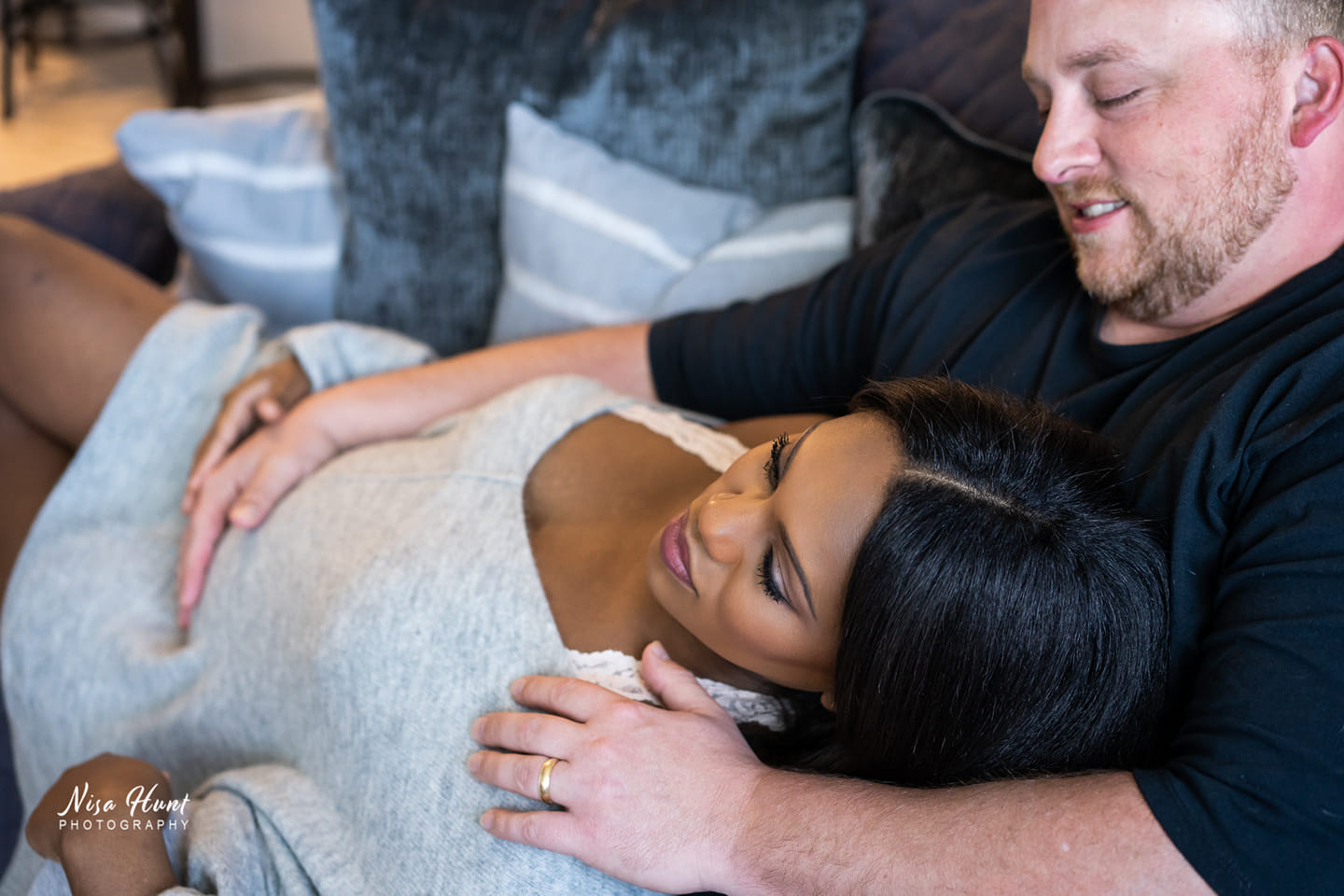High maternal mortality rates, disproportionate infant mortality rates, disparities in medical care, and lack of healthcare access are all part of the conversation when discussing pregnancy outcomes for black expectant mothers.
With the amount of data that has been published detailing the many dangers black women can face during their pregnancies, labor, and delivery; the joy of motherhood can be overshadowed at times by fear, anxiety, and frustration.
During my pregnancy, I remember telling my friends how terrified I was to give birth and praying that my birth story would not be another addition to the statistics. I was healthy(ish) with no preexisting conditions, I was in my early(ish) 30s, and I had access to healthcare, so by all accounts my labor and delivery should have been relatively smooth.
RELATED READING :: My Experience as a Black Mom in Austin
However, my labor was anything but smooth, it was a traumatic experience that ended in an emergency C-section. The physician who performed my surgery found what they believed to be the cause of my labor complications and it was something that I had seen a specialist for prior to getting pregnant. In fact, I decided to see the specialist because I had concerns about my fertility. I wanted to have a complete examination done to see if there was something that could be preventing me from getting pregnant. The specialist ran some tests, did a quick examination, rushed through answering my questions while never taking their eyes off the computer screen, and sent me on my way in about 15 minutes. What I felt were legitimate concerns about my health and wellness were downplayed as unnecessary worries and I left the office feeling unheard and frustrated that I did not speak up for myself more during the visit.
A few days later the specialist office called me with my results and informed me that all my tests came back normal and my exam showed no sign of issues and no further testing was necessary. I was not completely satisfied with their findings and I had a feeling I should have requested a second opinion but, I did not feel comfortable voicing my concerns again. Shortly after that, I became pregnant and I can remember feeling silly for being so worried.
A year later, I was laying on a table in an operating room getting an emergency C-section due to complications during my labor that should have been identified by the specialist I originally went to for concerns regarding my reproductive health.
Looking back, I realized that the issue was missed or downplayed by several medical professionals throughout my adolescence and early adulthood. I was fortunate to have a wonderful OB-GYN during my entire pregnancy, a skilled physician who was so calming during my C-section, and excellent nursing staff during (what felt like) my never-ending labor. Even with the excellent care I received during my pregnancy and delivery, I was still impacted by the fact that I was not taken seriously when I actively sought out care for a medical concern. I often wonder what would have happened if I did not have such wonderful care during my pregnancy and delivery. When I share my story with other black women, I am amazed how many have had similar experiences during their pregnancy and deliveries.
The fear I felt after days of trying to labor and getting nowhere and the panic I felt when I was told my child’s heart rate was dropping brings tears to my eyes even as I write this story. I am so grateful that we both made it out alive and healthy. I know that there are other black women that did not have the same outcome. As a black woman and mother I often feel ignored or unheard especially when raising concerns about my health. I have felt intimidated in medical spaces where I do not feel confident enough to speak up; however, my labor and delivery experience has made me even more determined to advocate for myself and my daughter to demand the care that we deserve.
I wrote this piece during Black History Month and could not think of a better time to share my story and raise awareness and hopefully encourage other black women to advocate for themselves and their healthcare as well. Speak up, ask questions, hire a doula, get a second opinion, do whatever you can to ensure that your voice is heard, and you receive the level of equitable care you are entitled to.











This is such great advice and a reminder of the awful reality we face as black mothers–making sure we speak up and feel heard during what is already such a trying time since we face potentially dire consequences. Thank you for highlighting this issue and making us all feel less alone in these experiences!